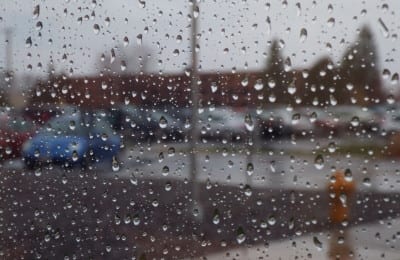Classrooms Tackle Racial Relations, PART 2
By BreeAnna Poshek and Holden Willmore*
In March 17 issue of The Spartan Spin, we introduced the first installment of “Classrooms Tackle Racial Relations.” With this series, our staff looked at how racial relations play a part in classroom curriculum.
Originally we had stated that this would be a two-part series. However, in the interest of covering each course thoroughly, we will be running a third installment, which will include the Child Related Careers, Theater and the school psychologist.
This installment focuses on the English Department classes that responded to our original inquiry about racial relations in the classrooms.
English Department
From sophomore year on, English classes incorporate literature from all over the world. In every course, students read something that addresses racial relations.
World Literature
As sophomores, students take World Literature, a course that allows them to expand their knowledge of other cultures through a curriculum that encompasses literature from authors of many different races.
“We focus on getting them reading literature outside of their own culture. For students to understand themselves, they have to learn about others,” English teacher Emily Kelly said.

(From left) Sophomores Ricardo Stage, Madison Hawkins, and Kelly Ferfon read with senior Philip McCotter during Lunch & Learn B on March 31. Throughout students’ four years, they will be exposed to racial relations through literature in their English classes. Photo Illustration by Kyler Krob
Amongst other novels, students in World Literature read “Things Fall Apart,” a piece of African literature that follows the story of a traditional Nigerian man, Okonkwo, who does not wish to convert to Christianity.
“African literature tends to be skimmed over. Students might read short stories but don’t typically delve into a novel. ‘Things Fall Apart’ was one of the first pieces of literature with a Nigerian point of view, rather than a white missionary, for example. It was a turning point for interracial literature,” Kelly said.
The author, Chinua Achebe, is Nigerian and the story of “Things Fall Apart” takes place in Nigeria. Though classes haven’t started reading the novel yet, sophomore Sunmi Famule has already read the book because her father owns it. Famule and her family are from Nigeria. Famule said she is wary of whether or not students are mature enough to read literature about other cultures.
“I think it is great that they are reading African literature, but I think they need to be smart enough to realize the time of the literature and not ask people stupid questions because they are from there.” Famule said. “It would be like if I read a story about the times of slavery in America and asked them, ‘Do you guys still use people to pick cotton?’” Famule said.
Famule cautioned people against accepting what they learn from the novel as a fact about everyone of that race.
“Usually when an author writes a book they have a message they’re trying to share, and people tend to take that one perspective and assume it’s the opinion of anyone who is of that race. That’s not true.” Famule said. “If you really want to learn about other cultures, you should make the choice to do some research outside of school.”
American Literature, Accelerated American Literature, Spartan Spin Literature
All juniors taking American Literature, Accelerated American Literature or School Newspaper and Literature, read “The Adventures of Huckleberry Finn” by Mark Twain. The book deals with racism and slavery as the main character, Huckleberry Finn, helps an escaped slave.
“‘The Adventures of Huckleberry Finn” follows Huck, already known and loved by many as a character from Twain’s previous book “The Adventures of Tom Sawyer,” through his personal revelations about the meaning of race, amongst other things.
“It is one of the most wonderfully constructed books that puts two people of completely different cultures in close
quarters with each other. They have been from day one, indoctrinated by rules and laws that prohibited them from equating with each other on the same level and now they find themselves on a raft trying to survive,” English teacher Andy Wolfe said. “The incidents that Twain puts them through force them to survive together and to have each other’s back, to look out for each other.”
According to junior Ariana Amys, an Accelerated American Literature student, “The Adventures of Huckleberry Finn” is a classic and should not be banned or altered because it is an important part of American history that we cannot just “sweep it under the rug.”
English teacher Minden Hultstrom has multiple approaches when dealing with racial relations in her accelerated
American Literature class. Along with reading “The Adventures of Huckleberry Finn,” students indulge in a World War II play by Lorraine Hansberry called “A Raisin in the Sun” and a set of poems by African-American Langston Hughes.
“When Mark Twain wrote Huckleberry Finn, he wrote it to give a glimpse of what the time was like,” Hultstrom
said, “‘A Raisin in the Sun’ allows a much more modern outlook and a family viewpoint at achieving the American
dream. The different literary devices allow us to explore the topic in novel form, then play, then through poems.”
Hultstrom focuses on making sure each student is comfortable in how the n-word is talked about when discussing the novel.
“At the start I don’t know each student’s comfort level, so before we start the novel we use articles and explore
background information to look into the history of the word,” Hultstrom said.
After the students interact with partners, in small groups and finally as a class discussion, they decide on a policy for how the word is explored during the reading of the book.
Amys felt that Hultstrom’s approach made studying a difficult subject easier.
“The use of the n-word was uncomfortable at times, but before we started reading it, Mrs. Hultstrom warned us that that was going to be in it, and she asked the class as a whole how we wanted to go about bringing it up. I think it was good she made sure we were all comfortable with,” Amys said.
Advanced Placement Language and Composition
There is only one junior class in which students are not required to read “The Adventures of Huckleberry Finn.”
Juniors who take AP Language and Composition, taught by English teacher Michael Stonesifer, read “Narrative of the Life of Frederick Douglass,” written by Douglass himself. In the book, Douglass shares his experience of being born into slavery and eventually escaping to the North.
“Douglass transitions from the life of a slave to a leader of the abolition movement,” Stonesifer said.
He said that race is not a major theme in the class, but it is addressed when it comes up in the text that they are
studying. Other than the “Narrative of the Life of Frederick Douglas,” the class also touches on race issues in short stories and research papers. Miranda Oja, a junior taking AP Language and Composition, remembers appreciating the life she lives today and not having to experience slavery or the unfair treatment of African Americans.
“It was like most things you would read about slavery, but it went more into depth on their daily lives, their unfair
treatment and what happened to them,” Oja said.
British Literature
Seniors taking British Literature for their English credit work with satirical writing and deal with some religious
issues between English and Irish. They also learn about race issues between the British Colonial Empire against India.
According to English teacher Danielle Gondik, racial relations are not a predominant issue discussed in her classroom. They focus on differences in other aspects, such as gender, class and age. However, race does play a part in some smaller readings and lessons the students complete.
“We read “How to Shoot an Elephant” by Rudyard Kipling. Kipling brings an interesting perspective because he is a British author whose parents lived in India, so he saw the issues between the British and the Indian’s firsthand,” Gondik said.
The race-related issue is a secondary theme in many of the pieces they read. Gondik said that the students do not always see it until they start breaking down the text. When they do, they are often surprised by how poorly people are treated.
“Literature is a reflection of the time in which it was written. It’s a different way to present history in that the message comes through the anecdotes of characters. It is important to learn about the history of why race issues exist so that we can move past it, prevent it and promote equality,” Gondik said.

(Top) English teacher Emily Kelly speaks about “Things Fall Apart” and the themes of the story on April 14
in Room 226. (Bottom) Sophomores Trey Knight, Kehinde Famule, Brandon Mattson, and Kaili Haller discuss
“Things Fall Apart.” This is one of the books that introduces students to racial relations through literature in
students’ high school English classes. Photos by BreeAnna Poshek and Kyler Krob, respectively
AP Literature and Composition
Discussions about the toils of a black man who travels from the South to find freedom from oppression, about jaded feelings being passed down from generation to generation creating stereotypes, and about people of different races showing heroism despite their mistakes. These are the types of conversations that students could have during their senior year if they choose to take AP Literature and Composition.
English teacher Andy Wolfe teaches the course and said he has chosen to incorporate many pieces of literature that open students’ eyes to things that are different than what they experience in their daily lives.
“It tends to create empathy in us for people who are not like us. Books are one way to do that. Another way to do that is to live amongst other people. Most don’t have the resources to do that, but we can all get a book,” Wolfe said.
Though he questions why, his class has consisted of primarily white students over the past few years. Racial relations is a topic that is addressed frequently in the literature they read, because it raises many questions among the students.
Senior Erin Gronquist noted that this prevalence of white students can make it hard for students to accurately discuss race issues.
“It’s hard to speak on race when you’re just a white youth from the Midwest,” Gronquist said.
Racial relations is addressed in the novel “Invisible Man” by Ralph Ellison and “Fences” by August Wilson.
When reading “Fences,” a play that shows the struggle of an African American family in the 1950s, senior Gabby
Gidley said that she found it interesting that blacks often had to work even harder than whites to overcome stereotypes and get the same opportunities.
“I could empathize with Troy because he’s been told his whole life that he could never go anywhere and he’s never been treated well by whites. He was betrayed by them, so I think he thought that even though Jackie Robinson had [succeeded in baseball] it didn’t mean that it was opened up for the rest of them,” Gidley said.

One of the primary ways students study racial relations is through literature. These books are covered
in various classes offered during a student’s high school career. Photo by Kyler Krob
Wolfe added that he finds that white people often find the comments that Troy makes about white people as racist. However, they don’t realize that these things are so embedded into their culture because it’s passed down through the generations.
“There’s a cultural lineage for any one of us that goes back to certain things that has something to do with how we were treated because of our culture or how we treat others because of our culture. Are we in a better place, a worse place, the same place? I don’t know. Those are the questions to be asked and to be answered. That’s what education is about,” Wolfe said.
This year, the students have the unique opportunity to be discussing this topic at the same time it is being discussed in the media. Gronquist sees his studies of the issue as a complement to current events.
“I think it’s kind of a big deal right now. With Ferguson and a lot of the police killings going on that are racially
charged, it’s an easy topic to talk about.” Gronquist said. Learning about racial relations…“just compliments what is already going on now, and added more to it.”
*Connor Gray contributed to the writing of this story.




